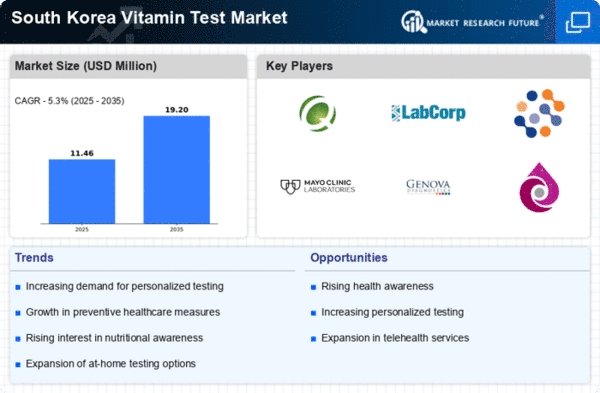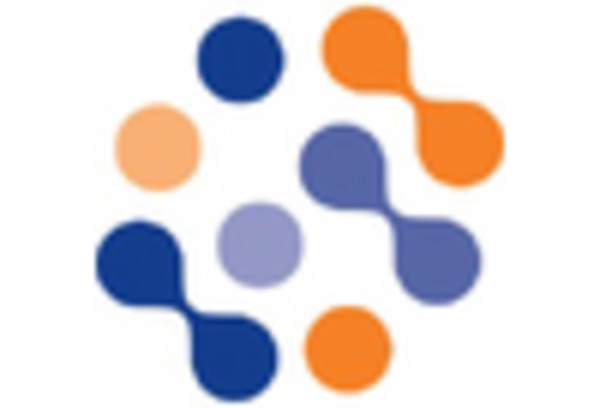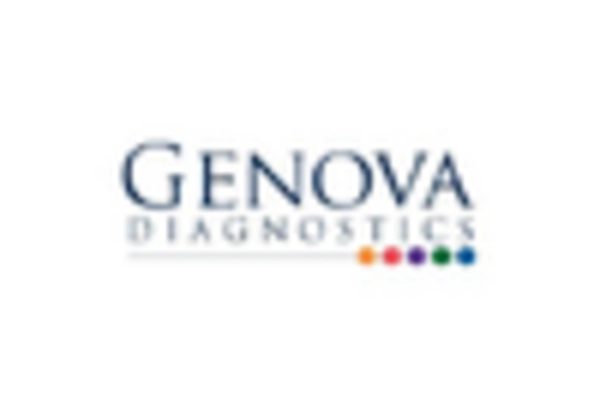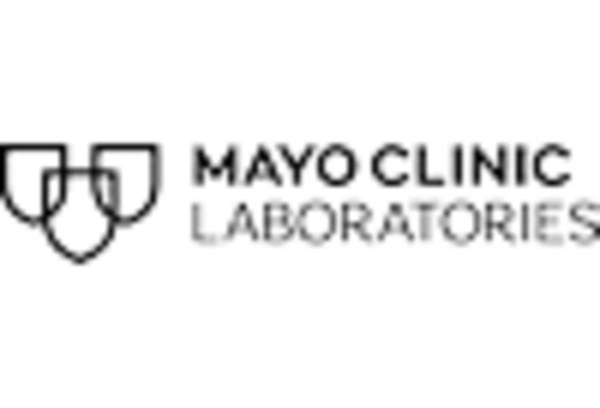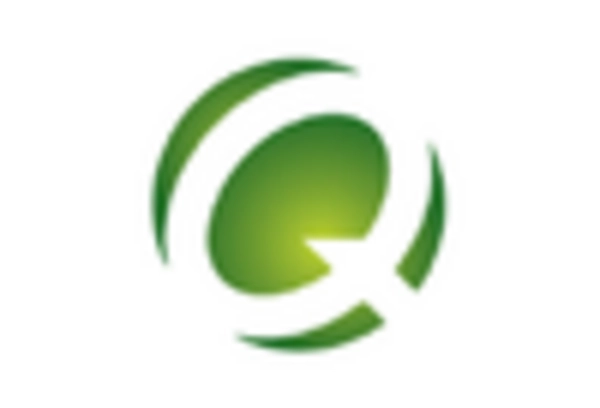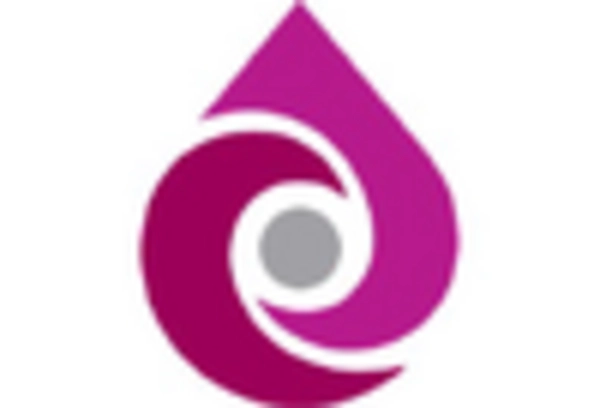Expansion of Health and Wellness Programs
The vitamin test market in South Korea is significantly influenced by the expansion of health and wellness programs across various sectors. Corporations and healthcare providers are increasingly implementing wellness initiatives that include regular vitamin testing as part of employee health assessments. This trend is indicative of a broader movement towards preventive healthcare, with organizations recognizing the value of maintaining employee health. Reports suggest that companies investing in wellness programs see a return on investment of approximately 3:1, which further propels the growth of the vitamin test market as more entities adopt these practices.
Rising Awareness of Nutritional Deficiencies
There is a growing awareness among the South Korean population regarding nutritional deficiencies and their impact on overall health. This awareness is driving individuals to seek vitamin testing as a means to identify and address potential deficiencies. The vitamin test market is likely to see increased participation from consumers who are motivated by health education campaigns and the availability of information on the consequences of vitamin deficiencies. Recent surveys indicate that nearly 40% of adults in South Korea are concerned about their vitamin intake, suggesting a robust market potential for testing services.
Technological Advancements in Testing Methods
Technological advancements are playing a crucial role in shaping the vitamin test market in South Korea. Innovations in testing methods, such as at-home testing kits and mobile applications, are making vitamin testing more accessible and convenient for consumers. These advancements not only enhance user experience but also improve the accuracy and reliability of test results. The vitamin test market is likely to benefit from these technological developments, as they cater to the increasing demand for quick and efficient health assessments. The integration of technology into health services is expected to drive market growth in the coming years.
Government Initiatives Promoting Health Awareness
Government initiatives aimed at promoting health awareness are significantly impacting the vitamin test market in South Korea. Various public health campaigns are being launched to educate citizens about the importance of regular health check-ups, including vitamin testing. These initiatives are designed to encourage preventive healthcare practices among the population. As a result, the vitamin test market is likely to see an uptick in demand as more individuals participate in government-sponsored health programs. The commitment to improving public health through education and accessibility is expected to foster growth in this sector.
Increased Demand for Personalized Health Solutions
The vitamin test market in South Korea experiences a notable surge in demand for personalized health solutions. Consumers are increasingly seeking tailored health assessments that provide insights into their specific vitamin levels. This trend is driven by a growing awareness of the importance of individualized health management. According to recent data, the market for personalized health services is projected to grow at a CAGR of 10% over the next five years. As individuals become more proactive about their health, the vitamin test market is likely to benefit from this shift towards personalized testing and recommendations.


